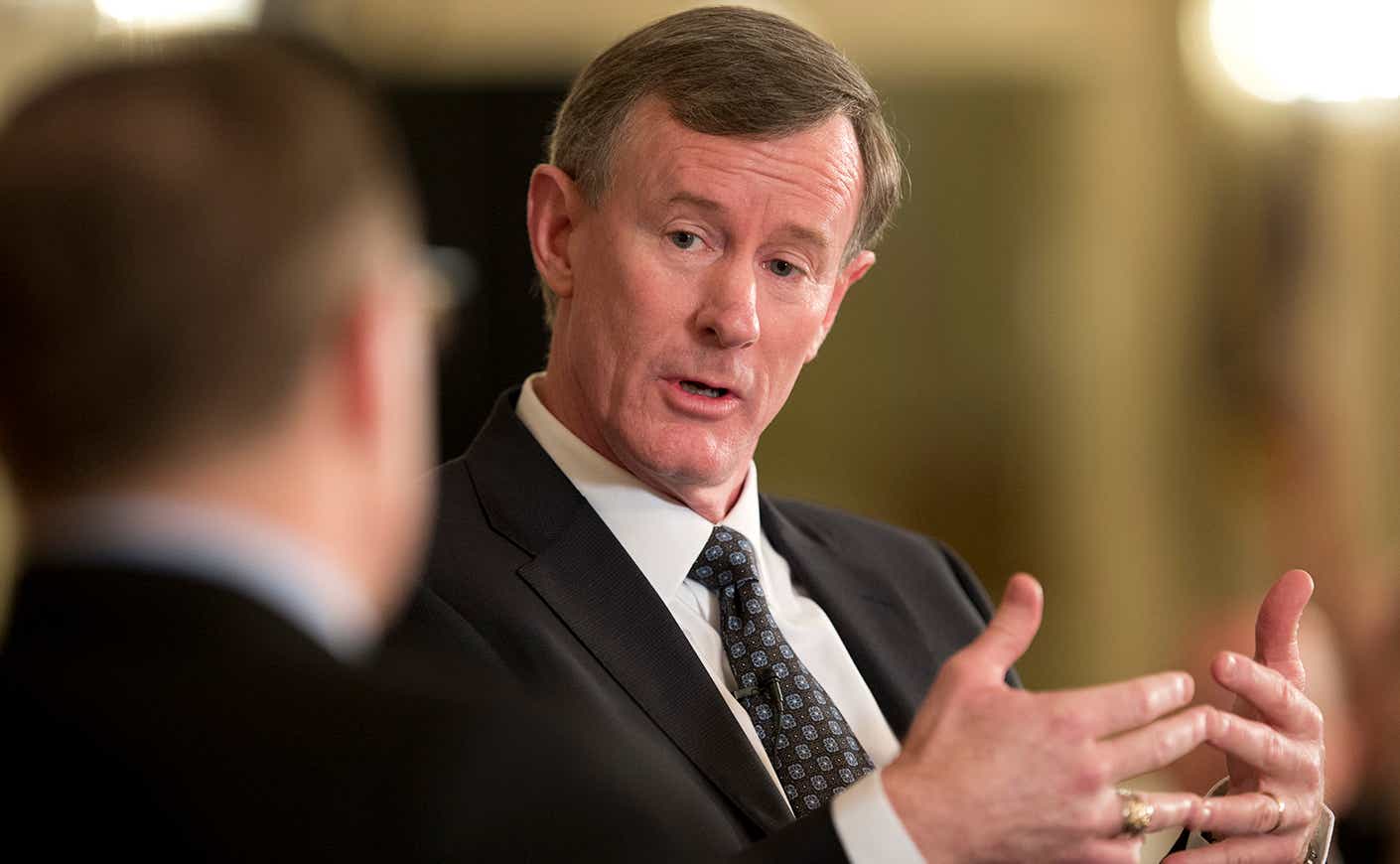Admiral McRaven had one piece of advice to the class of 2014 when he delivered his now-viral commencement speech at the University of Texas: Make your bed. Since then, his speech has been viewed more than 10 million times on YouTube and has become a New York Times best-selling book.
With graduation season upon us, McRaven has returned with a new book about something we’ve all become too familiar with this past year: Heroism. “It’s not about what they accomplished,” the admiral told us. “It’s about the qualities that got them to that point.” We spoke with Admiral McRaven about his new book, The Hero Code: Lessons Learned from Lives Well Lived, and his advice to the class of 2021.
View an excerpt of ‘The Hero Code’ here.
Katie Couric Media: In the book, you say that your idea of what constitutes a “hero” has evolved over the course of your life. How do you define a hero today?
Admiral William McRaven: Interestingly enough, I like the textbook definition. “A hero is someone we admire for their noble qualities.” So, it’s not about what they accomplished necessarily; a decorated soldier, a billionaire businesswoman, a world champion sports figure, a Nobel Laureate — but it is about the qualities that got them to that point — courage, perseverance, sacrifice, etc. I used to confuse accomplishments with virtues — now I know better and the virtues are a greater indicator of heroism.
A lot of us tend to think that heroes are simply predestined to be that way. But you make the case that we can all become heroes. How can we learn these character lessons?
You can absolutely learn to be a hero by watching those that exhibit noble qualities. You can learn to be courageous by watching the men and women who stand up to the bullies, run into the burning building, or speak out for what they believe in. You can learn to be humble by watching those who have accomplished great things and yet still understand what is important in life. Virtues can be learned.
Not to put you on the spot here Admiral, but a lot of us consider you to be a hero. Isn’t there a certain amount of pressure that goes with that honor?
For anyone who is admired or respected by others there is the burden of living up to those expectations. But, it can be a light burden if you believe you are being true to yourself and doing something honorable. I can’t speak to whether I’m a hero or not, but I will always try to live up to expectations from my family and friends. And when I falter, which I invariably do, I get back up from the fall and try to do better.
This last year has taught us a great deal about heroism, particularly as we’ve witnessed the enormous sacrifice and courage of our essential workers and first responders. How can we ensure that these heroic individuals aren’t forgotten once this crisis has passed?
If we value the qualities of those that were heroes during the Pandemic; their courage, their sacrifice, their sense of duty — then we will never lose sight of what’s important and those heroes and what they did for the nation, will stay with us long after the pandemic is over.
You went viral for your commencement speech at the University of Texas in 2014. With graduation season upon us, what would you tell graduates today?
First, I am the biggest fan of the millennials and the Gen-Z that you’ll ever meet. I have seen them in combat around the world and watched them going to school in Texas to make a difference for their families. I believe in these young men and women.
I would give them two pieces of advice. To be successful in life you have to work hard. Harder than everyone else if you want to be the best. I know they would like to find the perfect work/life balance, but I don’t know that it exists. I certainly haven’t found it. If you want to be successful, you will have to work hard and sacrifice a lot.
Next, I would tell them to learn to forgive. In society today we seem to be easily offended. We are quick to anger and some people believe that every offensive act, no matter the intent, requires a swift rebuke. It is hard to forgive because we are afraid. Afraid that forgiving will take away the anger that drives us, the hatred that motivates us, and the righteous indignation of being wronged. Learn to forgive — it will take away your burden as well as theirs.
It’s no secret that this year looks a lot different than years in the past. How do you suggest graduates handle the challenges they’re going to face as they head out into the world — whether it’s not going into an office, not getting the job they wanted, not getting into their top pick college… the list goes on.
In dealing with the challenges — stay positive. I have had a lot of setbacks in my life, but I always believed that I could overcome those obstacles with hard work. Never lose hope. Next, have a routine. Routines give you stability. They help you have some control over your life. And yes, as silly as it might sound, start your day off by making your bed.
Finally, I’ll end with a tough one — did you make your bed this morning, Admiral?
Of course, I make my bed every morning.












